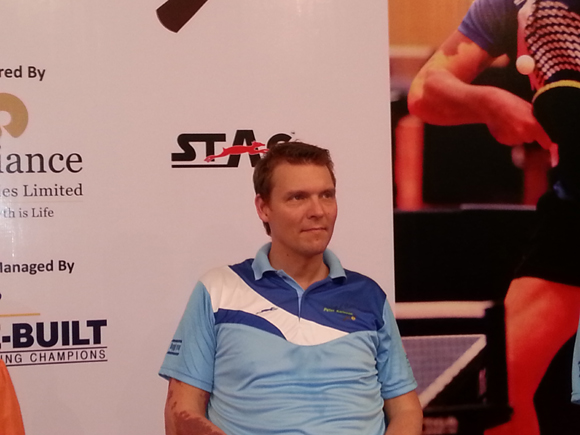
Multiple World table tennis champion Peter Karlsson tells Bikash Mohapatra if he can give the experiences he got as a player to other young players, he'd be more than happy.
Seldom has a player who played second fiddle for most part of his career looked so content.
Seldom has a player who witnessed a generation end with his retirement looked so hopeful.
Seldom has a player accepted the reality as it is, and yet remained positive.
Peter Karlsson is an aberration.
For someone who is a multiple world table tennis champion to retain his humility isn't a sight you see too often. And then there's that ubiquitous smile that exudes positivity, so much so that one is forced to believe what hitherto seemed unbelievable.
The interaction palpably started with his days as a table tennis professional, a period which coincided with some of the best individual players to come out of Sweden, something that made the country the most dominant in those times.
"In the seventies, and early 80s China was dominating in table tennis, as they are doing now. So, to be part of that Swedish table tennis team which could break this Chinese dominance, I think is my biggest achievement," he admitted, in a matter-of-fact tone.
"I was very fortunate to be part of this very fantastic Swedish team and am still very proud of this," he added.
While being part of this legendary Swedish team – that included the likes of Jan-Ove Waldner, Jorgen Persson, Mikael Appelgren, Erik Lindh and Thomas von Scheele – earned Karlsson four world team titles and one in doubles, a major success in singles remained elusive.
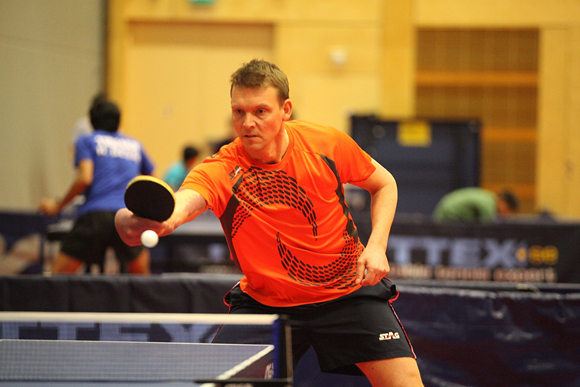
In fact, Karlsson's lone major singles title came in the twilight years of his career, at the European Championships in 2000.
However, regrets there are none.
"In those days the competition in Europe was very tough as opposed to the situation now," he explained, adding, "There were many other good players who didn't win as many titles as I did.
"Perhaps there were some things, the small details, that make a huge difference between winning and losing that I could have changed. But I have no regrets at all. Now that I have an opportunity to help the young players, I get to see a clearer picture now.
"In my life now it's about trying to help other players. The experiences that I got as a player if I can give it to other young players, then I'd be more than happy."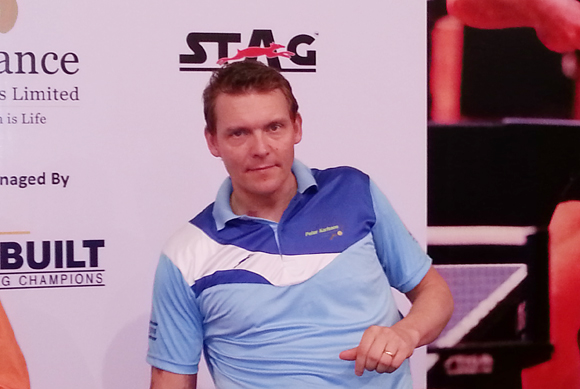
The golden generation that he was part of, ironically came to an end with his international retirement. Almost a decade has passed and Sweden is nowhere to be seen in the table tennis firmament.
So what exactly went wrong?
"I think what actually went wrong with table tennis in Sweden is that the old generation stayed for a long period and there was no new lot of players to replace it," explained the 44-year-old.
"Normally you have a natural switch, where a young generation comes and beats (takes over) from the older one. But in Sweden this young generation stopped as the older players continued for a long time.
"This created a gap. The history and knowledge that should have been transferred from one generation to the other, wasn't actually transferred.
"And when the older lot of players eventually stopped playing, the new generation of players had to start from the scratch. The same thing happened with Swedish tennis as well," he added.
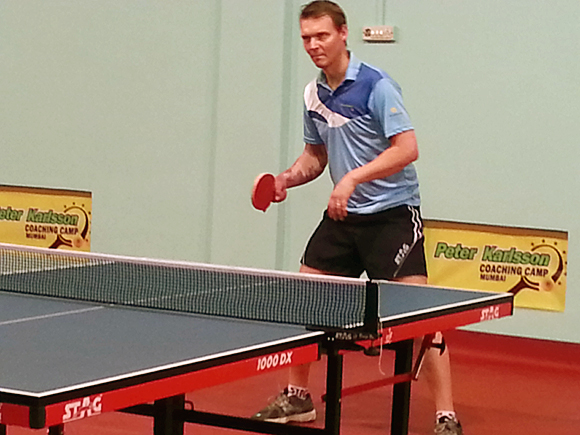
While being hopeful about the future of the sport in his country, the veteran was also pragmatic enough to admit the highs the players of his era had was a tough act to replicate.
"I think first of all we have to think in a bigger perspective, that Sweden, as a small country, could dominate world table tennis," explained Karlsson, the positivity in his voice intact.
"Nobody expected this," he continued, adding, "What we did for close to 20 years was very extreme and exceptional.
"Now, China is dominating again. It's one the biggest countries and table tennis is their national sport. They have a fantastic structure and good history. So what we see now (the dominance) is very normal."
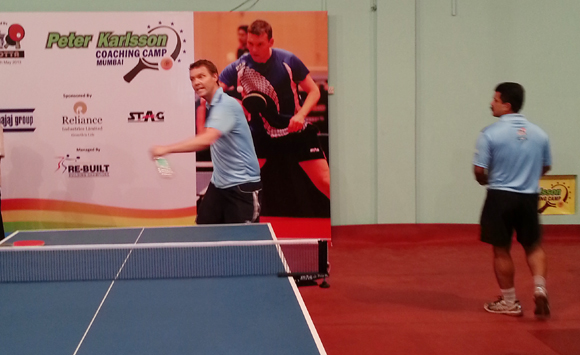
It'd be an understatement to say that the Chinese success has made, what was earlier a very competitive sport, monotonous. But isn't the one-nation dominance detrimental to the long term prospects, considering sport thrives on rivalry and competitiveness?
"Yes, the Chinese dominance is a risk. But what's more important is that the other countries still have the belief that they can beat China," explained Karlsson, proceeding to elucidate on his point.
"In Paris (World championships) we saw a doubles team from Chinese Taipei, and another from North Korea, win. So we have players from other countries that can compete," he added.
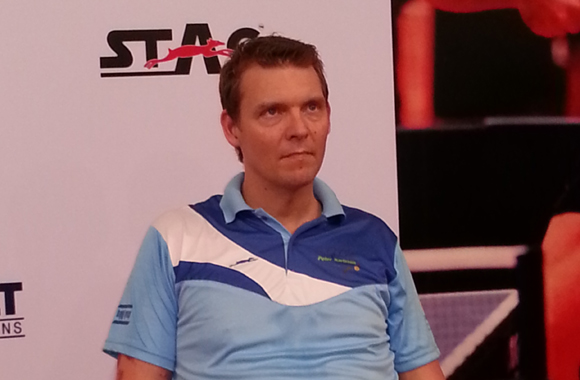
The Swede thereafter proceeded to offer his own solution to increase the sport's slumping fortunes, albeit taking a cue from another racket sport.
"If we take an example from tennis, for a long time the two best players in the world were from the same country, America (Pete Sampras and Andre Agassi)," elaborated the veteran, "But when they played in a final, it was a 'dream final'.
"So maybe it is not about the country but the personality of the players. A final between Zhang Jike and Wang Hao can be a great final. But then it is construed as an all-Chinese affair and China is considered the most dominant nation in table tennis.
"In tennis it is about the players, not the countries. Maybe in table tennis we need to change the way we promote the players, their personality rather than the country the hail from."
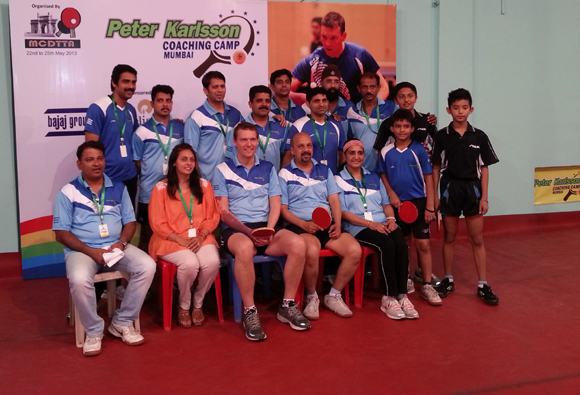
The interaction eventually veered towards 'Champions for Peace', the initiative he has been part of ever since he hung up his rackets.
"It is also one important thing in my life," explained Karlsson, the contentment in his voice apparent.
"Table tennis, the sport, gave me a lot," he continued, adding, "If I can give something back to the world, especially the poorer parts, it makes me happy.
"For me it is about doing things that I feel is right. If I can use my position for something good it gives me a sense of satisfaction.
"Peace and Sport help me get it done in an organized way. I do it for free as it is a non-profitable organization."
So what is it exactly that he finds satisfying about the programme?
"To go to these vulnerable places, interact with the NGOs that Champions for Peace has created, see the energy and then some time later hear they are running in a good way, having attracted people from the streets in to sport," explained Karlsson, adding, "The key thing here is that sport isn't about winning and losing. It's an education, a way of living.
"By doing sports in an organized way is to make people come into a system. When this happens it is very satisfying.
"I have been fortunate to get the opportunity to meet so many people and give something back."